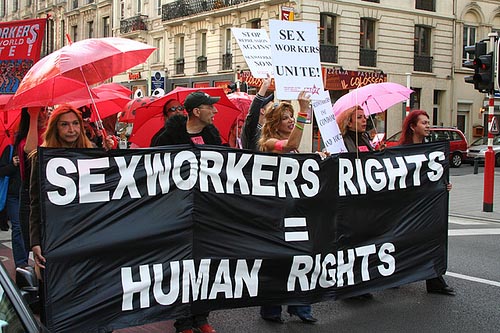Another UN agency has reaffirmed it’s support of sex workers in response to Equality Now’s anti-sex worker campaign. The support of UN Women highlights the extent to which the feminist movement is increasingly on the side of sex workers, seeing sex workers as rights bearers, rather than the recipients of dis-empowering ‘rescue’ services.
This leaves Equality Now starkly on the fringes of the global women’s movement, as organizations as authoritative as UN Women stand with sex workers in asserting that sex work is work, not trafficking. The statement from UN Women highlights that conflating sex work with trafficking or sexual exploitation leads to services that fail to address the needs of trafficked people, and creates a situation where sex workers’ human rights are frequently abused.
The statement from UN Women also notes:
- It is important that we recognize the rights of sex workers by striving to ensure safety in and through the workplace, so that they can be free from exploitation, violence and coercion.
- We recognize the right of all sex workers to choose their work or leave it and to have access to other employment opportunities.
This clarifies that UN Women stands with UNAIDS and the global sex worker rights movement, in supporting safe workplaces – which come with decriminalization – and the right to self-determination, including the right to stay in sex work. The right of all sex workers to choose their work precludes supporting the ‘Swedish model’ – the model supported by Equality Now – which tries to drive sex workers from sex work (against their consent) through making it intolerably dangerous. In supporting the right of sex workers to choose to stay in sex work, UN Women come down against the Swedish model, and against making sex work more dangerous.
The UN Women’s statement notes that sex work is often associated with violence. In contexts where the legal frameworks surrounding sex work are punitive and criminalizing, sex workers do indeed experience structural violence, police violence, and interpersonal violence. This is because legal frameworks that criminalize sex work make sex workers vulnerable, by increasing the stigma against us, and signalling to offenders – whether police or civilians – that sex workers are considered disposable, and will be unlikely to be listened to, or be able to access justice. The Swedish model that Equality Now are campaigning for is one example of a legal framework that increases sex workers’ vulnerability to violence by increasing stigma against workers. Sex workers all over the world are aware of the relationship between sex work and violence; but that relationship exists because of criminalization and stigma: it is not intrinsic to our jobs.
UN Women highlight that the structural factors which lead to people feeling driven into sex work – such as poverty and discrimination – need to be tackled, but not by further criminalizing sex work. This echoes the words of the African Sex Worker Alliance, in their response to Equality Now: “many women who would otherwise live in poverty support themselves and their families through sex work: those who seek to further criminalize those women have no suggestions for replacing their income“.
Source








[…] UN Women reaffirm that they stand with sex workers: “sex work is not trafficking” […]